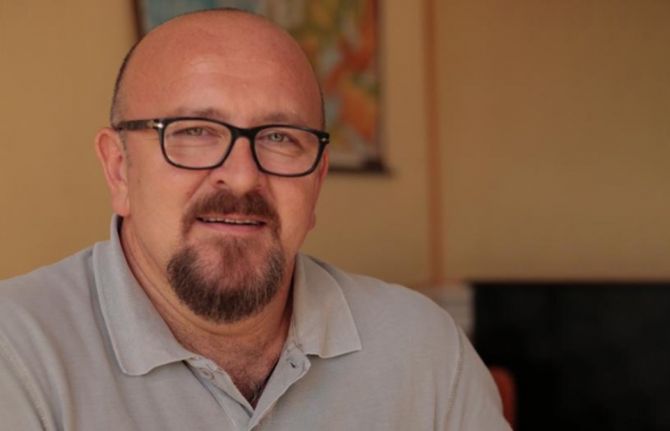
Feature Story
Salif Keita performs at UNAIDS fundraising concert in Athens
03 mars 2006
03 mars 2006 03 mars 2006
On 1 March Salif Keita, one of the world’s greatest musicians, was in Athens performing in front of a packed audience at the Greek Opera House. This was a unique event as it was the first time a concert, other than classical music, was held at the Opera House. The concert was a fundraising event for UNAIDS, organized by Ms Mero Kececioglu-Kylicas, UNAIDS Special Representative and President of the Foundation for Greek Action in Africa.
Prior to the concert opening, UNAIDS Executive Director Dr Peter Piot reminded the audience that AIDS affects everyone. “There isn’t a single country untouched by the epidemic,” he said. He went on to describe AIDS as “one of the greatest challenges and threats to the 21st century”, given that it has killed more than 25 million people and infected an additional 40 million worldwide. He concluded on a hopeful note by saying, “we can defeat this epidemic if every one of us gets involved in fighting it, in whichever way we can….because united, we can win.”
Dr Piot was in Athens as part of his first official visit to Greece. He met with the Greek Minister of Health, Dimitrios Avramopoulos, and Deputy Minister of Foreign Affairs, Evripidis Stylianidis, to strengthen collaboration between UNAIDS and the Greek Government. Their discussions focused on the fight against AIDS in the world’s worst-affected region, sub-Saharan Africa, as well as on the Balkans and the former Soviet republics, which are experiencing rapidly growing epidemics. The Greek Government is in the process of developing a cooperation agreement with UNAIDS.
During the meetings, Greece reiterated its commitment to the fight against AIDS, focusing particularly on the need to tackle human trafficking from the Balkans and the former Soviet republics. Immigrants from these regions, as well as from Africa, make an important portion of Greece’s population of 9 million, and there has been an influx of sex workers into Greece. This is why human trafficking has been a priority for the Greek government. The Greek government and AIDS NGOs are responding to the problem by offering free health services, including HIV testing, counseling, and treatment through the public health systems.
The number of people living with HIV in Eastern Europe and Central Asia reached an estimated 1.6 million in 2005 – a twenty-fold increase in less than 10 years. Russia has the biggest AIDS epidemic in Europe with an estimated 860,000 people living with HIV. Russia’s and Ukraine’s epidemics continue to grow at a rapid pace due to the interplay between injecting drug use and unsafe sex. HIV is affecting larger parts of society, with more women testing HIV-positive each year.



